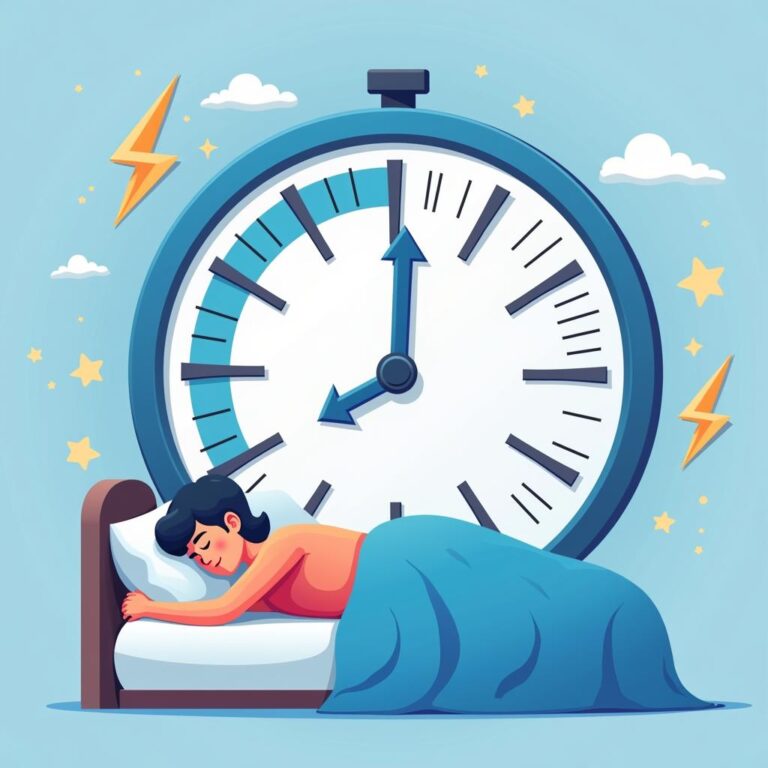In today’s fast-paced world, achieving maximum performance in daily activities is paramount. One key factor that significantly influences our ability to perform at our best is our sleep schedule. Creating an ideal sleep schedule can enhance productivity, improve mood, and boost overall performance. This article explores the optimal sleep schedule for maximum performance and the science behind it.
Understanding the Importance of Sleep
Sleep is not just a period of rest; it plays a critical role in physical health, emotional well-being, and cognitive function. When we sleep, our bodies undergo vital processes, including brain detoxification, tissue repair, and memory consolidation. These processes are essential for daily performance, making sleep a non-negotiable aspect of a healthy lifestyle.
Defining the Ideal Sleep Schedule
An ideal sleep schedule can vary from person to person; however, certain principles apply universally. Most experts recommend that adults aim for 7 to 9 hours of sleep each night. Here’s how to structure your sleep schedule effectively:
1. Set a Consistent Sleep and Wake Time
One of the most effective strategies for optimizing sleep is to maintain a consistent sleep and wake time, even on weekends. Going to bed and waking up at the same time every day helps regulate your body’s internal clock, which can improve the quality of your sleep.
2. Plan for 7 to 9 Hours of Sleep
Prioritize getting between 7 to 9 hours of sleep each night. This duration is widely recommended by sleep experts and is linked to optimal cognitive function, mood stabilization, and overall health. Tailor this duration based on personal needs and adjust as necessary, while keeping in mind that everyone is different.
3. Create a Pre-Sleep Routine
Establishing a calming pre-sleep routine is crucial for signaling to your body that it’s time to wind down. Activities such as reading, meditating, or gentle stretching can help relax your mind and body. Avoid stimulating activities like brushing through social media or watching intense TV shows right before bed.
4. Consider Your Circadian Rhythm
Your circadian rhythm, often referred to as your body’s internal clock, dictates your natural sleep-wake cycle. Understanding when you naturally feel sleepy or alert can help you develop an ideal sleep schedule that works with your body rather than against it. Most people experience natural dips in energy levels in the early afternoon; paying attention to these cues can improve your overall performance.
Types of Sleep and Their Impact on Performance
Not all sleep is equal. Understanding the different stages of sleep can help define how they contribute to performance:
1. Rapid Eye Movement (REM) Sleep
REM sleep is crucial for cognitive functions such as learning, memory retention, and creativity. It typically occurs 90 minutes after falling asleep, repeating several times throughout the night. Prioritizing uninterrupted sleep increases the likelihood of experiencing adequate REM cycles.
2. Non-REM Sleep
Non-REM sleep has three stages, with deeper stages being associated with physical restoration and repair. This phase is vital for muscle recovery and immune function, making it essential for physically demanding tasks and overall health. Maximizing your total sleep duration allows for more time spent in these restorative stages.
Tips for Maintaining an Ideal Sleep Schedule
Integrating a consistent sleep schedule into your lifestyle can be challenging. Here are several tips to ensure success:
1. Limit Exposure to Blue Light
Blue light emitted from screens can disrupt your circadian rhythm. To promote restful sleep, limit screen time at least one hour before bed and consider using blue light-blocking glasses if necessary.
2. Optimize Your Sleep Environment
Create a calming atmosphere conducive to sleep. Keep your bedroom cool, dark, and quiet. Consider using blackout curtains, ear plugs, or white noise machines to enhance your sleep environment.
3. Be Mindful of Diet and Exercise
Your diet and physical activity level can significantly impact your sleep quality. Avoid heavy meals, caffeine, and alcohol close to bedtime. Regular exercise, preferably earlier in the day, can promote better sleep. Listen to your body and ensure you strike a balance that keeps you energized without interfering with sleep.
4. Manage Stress and Anxiety
Stress and anxiety can severely impact your ability to fall asleep and stay asleep. Incorporate relaxation techniques such as mindfulness, yoga, or deep-breathing exercises into your daily routine to manage stress levels effectively.
Measuring and Adjusting Your Sleep Schedule
Once you implement your ideal sleep schedule, it’s important to monitor its effectiveness. Utilize sleep tracking apps or journals to log your sleep quality and morning alertness. If you find you’re still fatigued or unfocused, consider adjusting your sleep duration or bedtime.
Conclusion
Finding the ideal sleep schedule for performance is a personalized process, but it’s an investment worth making. The benefits of adequate rest encompass everything from improved concentration to enhanced physical health. By understanding sleep mechanics, establishing consistent habits, and adjusting your behavior based on personal needs, you can cultivate an optimal environment for peak performance. Prioritizing sleep is not just about rest; it’s a commitment to your overall well-being and success.







